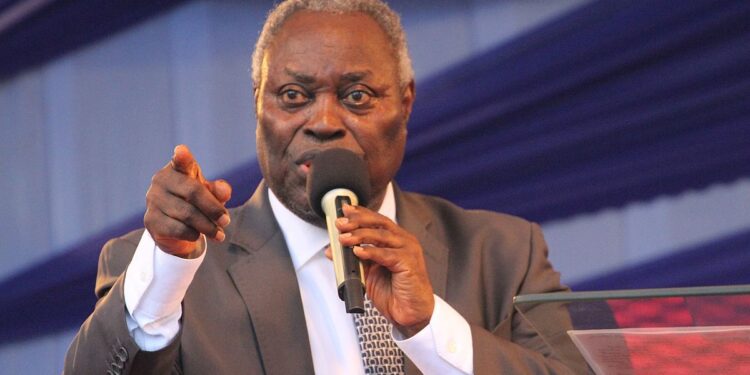William Kumuyi, the General Superintendent of Deeper Christian Life Ministry, has encouraged mothers and girls to embrace virtue, value-driven principles, and purposefulness in their lives. He shared this advice on Friday night during the Global Women’s Conference organized by Change Makers International (CMI) in Port Harcourt.
According to Pathway News, the six-day conference, themed “Driving Positive Change and Social Impact,” focused on empowering women to become agents of change in society.
Kumuyi, who also serves as the Convener of CMI, highlighted the importance of nurturing purpose-driven change makers, emphasizing that society needs God-fearing individuals to drive positive transformation. He asserted that if everyone in society could change for the better, the nation would improve significantly.
Also Read:
. UI receives N201m education loan for 1,370 students
. Edo gov’ship election: Igbinedion resigns from PDP
. Corps Marshal Expresses Concern Over Reckless Driving on Nigerian Roads
Addressing the audience, Kumuyi posed thought-provoking questions: “Who can find a virtuous woman? Who can free a victimized woman? Who can form a value-driven woman?” He referenced Proverbs 31:16, noting that virtuous women can be found in every community if they make themselves available. He also stressed that God has the power to shape a value-driven woman and liberate those who feel victimized.
“Many people suffer from a victimization syndrome, feeling tied down and conditioned by the words and accusations of others. However, accusation is not condemnation. Conditioning your mind as a victim keeps you stagnant, but changing that mindset can propel you miles ahead. Walk away from accusation and abuse from those who condemn you,” Kumuyi urged, citing John 8:10-11.
He encouraged young girls to distinguish themselves through their actions, dedicating time to study and personal development.
Earlier in the event, Uchenda Okogbule, President of the Rivers Women University Association and a guest speaker, discussed the topic “Breaking Barriers, Turning Adversities into Opportunities.” She explained that “breaking” signifies separation from barriers, while barriers are obstacles that hinder progress. Okogbule identified various barriers, including cultural, religious, political, and socio-economic challenges, such as gender-based violence, female genital mutilation, and child marriage.
Okogbule also highlighted the political barriers women face, noting that they are often excluded from deep participation in politics. She described these practices as dehumanizing and urged women not to see themselves as helpless or hopeless. Instead, she encouraged them to pursue education, seek knowledge, and support one another.
“Women should refuse to be used for harmful practices against each other. They should engage in advocacy within their communities, speaking out against these barriers to build better families and a stronger nation,” Okogbule concluded.









